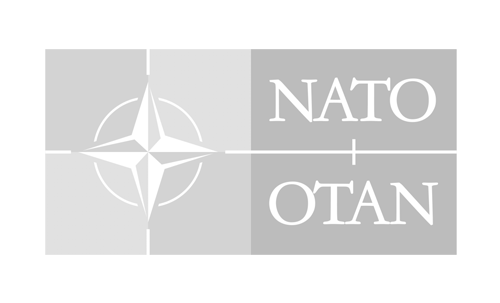APPS
APPS


Into The Cold: A Journey of The Soul is an exhilarating and introspective documentary that chronicles a grueling 400-mile trek across one of the harshest environments on Earth: the Arctic. Premiered at the Tribeca Film Festival and recipient of numerous awards, this 2010 film follows renowned environmental advocate, photographer, and polar explorer Sebastian Copeland, alongside his expedition partner Keith Heger, as they embark on a journey that tests their resilience, courage, and survival instincts.
Set against the backdrop of the centennial of Admiral Robert Peary’s 1909 expedition to the North Pole, the mission was undertaken not only as a tribute to polar exploration but as a powerful statement on climate change. As Copeland and Heger navigate the treacherous landscapes of the Great North, they bear witness to an environment that is rapidly disappearing. The film highlights the urgency of their journey, underscoring the reality that one hundred years from now, such an expedition may no longer be possible due to the melting polar ice caps and the devastating effects of climate change.
Into The Cold is more than a documentary; it’s a moving exploration of human endurance and a sobering reminder of the fragility of our planet. Through Copeland’s lens, viewers experience the stark beauty and the relentless challenges of the Arctic, while grappling with the profound message that this icy wilderness may soon be lost. The film serves as both an homage to past explorers and a call to action, inspiring viewers to reflect on their connection to the planet and the urgent need for environmental preservation.
More with Sebastian Copeland: Across the Ice, Antarctica
1:15:00 | 2010
Tags: Sebastian Copeland Adventures, Into The Cold at Tribeca Film Festival,
Global climate change and its damaging effects to our planet’s fragile Polar Regions is real. Sebastian’s expeditions to Greenland, Antarctica and the North Pole serve as a significant source to educate individuals, lobbies, and members of media and government on this issue.
Please join us in supporting Sebastian Copeland.

The centennial of Admiral Robert Peary’s 1909 expedition to the North Pole commemorates one of the most celebrated and controversial milestones in the history of polar exploration. On April 6, 1909, American explorer Robert Peary, along with his assistant Matthew Henson and a team of four Inuit men—Ootah, Seeglo, Egingwah, and Ooqueah—claimed to have reached the geographic North Pole. Peary’s expedition, supported by years of Arctic experience and meticulous planning, was a culmination of repeated attempts over decades to achieve what many believed to be the last uncharted “first” on Earth.
Peary’s journey to the pole, however, was filled with significant physical challenges, including brutal sub-zero temperatures, shifting ice floes, and blinding snowstorms. His expedition relied on a unique "relay" system of supply caches and support teams, which allowed the core team to push forward with lighter loads in the final push to the pole. Peary’s claims were heralded in the media, and he received widespread recognition, securing his legacy as a pioneering figure in polar exploration.
Yet Peary’s achievement has not been without controversy. Rival explorer Frederick Cook claimed to have reached the pole a year earlier in 1908, igniting a heated dispute that remains unresolved among historians. Additionally, some experts have questioned Peary's navigation methods, suggesting he may have fallen short of the actual pole. Despite these debates, the 1909 expedition remains a significant feat of endurance and exploration, symbolizing the height of the heroic age of polar exploration.
The centennial in 2009 served as both a commemoration of Peary’s accomplishment and a reflection on the dramatic environmental changes facing the Arctic. The polar ice cap, once seen as an unyielding frontier, is now rapidly diminishing due to climate change, a reality that would have been unimaginable in Peary’s time. The centennial sparked various expeditions and projects aimed at raising awareness of the Arctic’s vulnerability, with explorers like Sebastian Copeland retracing parts of Peary’s route in films such as Into The Cold: A Journey of The Soul, to highlight both the resilience of polar explorers and the urgency of environmental preservation.

Sebastian Copeland, a British-French-American, is a world-renowned polar explorer, climate researcher, environmentalist, photographer, and author. With a career that has seen him lead 27 polar missions, Copeland’s commitment to environmental protection and his relentless pursuit of a sustainable future have shaped his life's work. Combining his skills as a climber and mountaineer with a passion for polar exploration, Copeland uses visual arts as a powerful tool to document and inspire social change, bringing the beauty and vulnerability of Earth’s polar regions to global audiences.
Copeland's work has been widely celebrated and featured in National Geographic, Vanity Fair, GQ, Marie Claire, Elle, Outside, American Photo, The New York Times, People Magazine, USA Today, and Paris Match, as well as on NBC, CBS, NPR, and CNN’s Larry King Live. Through his expeditions and photography, he captures the transformative changes happening in these fragile regions, urging immediate action on climate issues.
In his polar exploration career, Copeland achieved a Guinness World Record for covering 595 kilometers in a single day, a feat that highlighted both his resilience and skill in navigating some of the world’s harshest environments. His exceptional talent has also earned him the International Photographer of the Year award in 2024 and three additional honors at the International Photography Awards in 2006 and 2007, including Professional Photographer of the Year for his bestselling book Antarctica: The Global Warning.
As an author, Copeland has published several influential works that underscore the critical importance of environmental conservation. His recent publications include Antarctica: The Waking Giant (2020), offering a profound exploration of the Antarctic landscape and the pressing challenges it faces due to climate change. Another notable work, Polar Explorations: To the Ends of the Earth (2022), provides an immersive look into the art of polar travel, combining stunning visuals with insightful narratives to inspire a deeper appreciation for these remote regions.
In addition to his literary and photographic achievements, Copeland is a dedicated climate advocate. He has addressed the United Nations, government bodies, universities, and Fortune 500 companies, highlighting the systemic transformations taking place in the polar regions and their geopolitical consequences. His activism has earned him a seat on the Board of Directors for the U.S. Branch of Mikhail Gorbachev's Green Cross International and for Shine On Sierra Leone. In recognition of his environmental efforts, he was awarded the National Order of Merit by French President Emmanuel Macron in 2019.
Sebastian’s explorations, including his 27 polar missions, serve as powerful platforms for raising awareness about climate change, inspiring audiences worldwide to understand and protect our planet’s most vulnerable regions. Through his compelling imagery, daring expeditions, and commitment to conservation, Sebastian Copeland continues to champion a sustainable future, reminding us of our collective responsibility to safeguard the Earth for generations to come.
Visit his website http://sebastiancopelandadventures.com/
Learn about Sebastian's exhibition https://www.scopelandfineart.com/

Keith Heger is an accomplished explorer and seasoned outdoor guide with extensive experience in polar expeditions. As the Director of Polar Expeditions for The Northwest Passage, he has led numerous adventures across North, South, and Central America, Western Europe, the Mediterranean, Antarctica, and the Arctic. His expertise encompasses sea kayaking, white-water kayaking, rafting, and wilderness travel, reflecting a deep commitment to exploring and preserving the natural world.
In 2009, Heger partnered with environmental advocate and photographer Sebastian Copeland on a 400-mile journey to the North Pole, commemorating the centennial of Admiral Peary's historic expedition. This challenging trek, undertaken in sub-zero temperatures, was documented in the film "Into the Cold: A Journey of the Soul," highlighting the physical and mental endurance required for such an endeavor.
Beyond his guiding and expedition work, Heger is dedicated to introducing people to the unknown, fostering a deeper appreciation for the environment. His leadership and passion for the outdoors continue to inspire others to embark on their own adventures and advocate for the preservation of our planet's most fragile ecosystems.

The North Pole, Earth’s northernmost point, lies in the heart of the Arctic Ocean, where all longitudinal lines converge. Unlike Antarctica, which is a landmass covered in ice, the North Pole sits on shifting sea ice that covers ocean waters, typically 13,000 feet (4,000 meters) deep. This polar region experiences some of the planet’s most extreme conditions, including bitter cold, powerful winds, and extended periods of daylight and darkness, with six months of continuous daylight in summer and six months of darkness in winter.
Temperatures at the North Pole can range from -40°F (-40°C) in winter to just above freezing in summer. Due to climate change, however, the Arctic has been warming at twice the global average rate, resulting in significant thinning of the sea ice. This ice is now melting at unprecedented rates, dramatically transforming the Arctic environment and affecting both global climate systems and indigenous communities that depend on the Arctic’s resources.
Historically, the North Pole was one of the most coveted exploration goals, a symbol of human endurance and the limits of geographic discovery. The first documented claim of reaching the North Pole was made by American explorer Robert Peary in 1909, although his success has been debated. Since then, explorers, adventurers, and researchers have continued to push into the Arctic, navigating its challenging conditions by dog sled, icebreaker, and aircraft.
Today, the North Pole has become not only a site of scientific study but also a focal point for discussions on climate change, environmental protection, and geopolitical interests. The melting ice has opened new possibilities for shipping routes and resource exploration, prompting interest from Arctic-bordering nations, including the United States, Russia, Canada, and Norway. Additionally, the region is studied for its role in global climate regulation, as Arctic sea ice reflects sunlight and helps maintain Earth’s temperature balance.
The North Pole’s fragile ecosystem, while remote, serves as a critical barometer for global environmental health. Its rapid transformation provides scientists and policymakers with stark evidence of the impacts of climate change, underscoring the need for collective global action to preserve this vital region.


























Comments
Sign in or sign up to post a comment.
Show comments (0)